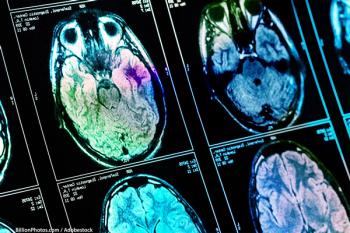
Brain Cancer Blood Test Could Accelerate Treatment
There could be a new way to diagnose brain tumors earlier.
The combination of advanced imaging and artificial intelligence (AI) could make a brain tumor blood test leading to earlier diagnoses – and perhaps better prognoses, according to new research.
Attenuated total reflectance-Fourier transform infrared (ATR-FTIR) spectroscopy, coupled with machine learning, could differentiate cancer patients and controls with better than 90% sensitivity and specificity, wrote the University of Strathclyde researchers in the journal Nature Communications last week.
“The diagnostic output is generated by machine learning algorithms, which learn the differences in IR signatures that are indicative and exclusive to cancer,” the scientists wrote. “Much of the progression in this area is centered around these computational approaches which require fine tuning.”
The retrospective patient cohort for developing the model was 724 patients: 237 controls, 260 glioblastoma multiforme grade IV cases, 46 grade I meningiomas, and a collection of other diagnoses including metastatic tumors and diffuse astrocytomas. The machine learning was trained over supervised learning runs, and then tested on a blind test data set.
Per patient and averaged over 51 randomized training and test-set splits, the projected results were: 93.2% sensitivity, and 92.0% specificity, the authors stated. Limitations exist, however, they added in the paper.
“It is important to note, that this preliminary clinical data provides an early insight into the diagnostic accuracy of this blood test, with the caveats of small patient numbers (n=104) which limits the obtainable values of sensitivity and specificity,” the authors added.
But the methodology, even with some statistical caveats, would ultimately mean better results and value from a healthcare economy standpoint.
“Considering the data with regards to the potential reduction in unnecessary brain scans, in this cohort of 104 patients, only 12 patients would be referred to secondary care,” they wrote. “Taking into account the health economic argument that 50% of patients would still be referred by their GP, regardless of the spectroscopic blood test results, this would still result in a 44% reduction in the number of brain scans.”
The results are the first demonstration of proof of concept, said lead author Matthew J. Baker, of the Department of Pure and Applied Chemistry at Strathclyde, and also the chief scientific officer of ClinSpec Diagnostics.
“This is the first publication of data from our clinical feasibility study and its demonstration that our blood test works in the clinic,” said Baker.
References:
Butler H, Brennan P, Cameron J, et al. Development of high-throughput ATR-FTIR technology for rapid triage of brain cancer. Nature Comm. (2019)10:4501.
Newsletter
Stay up to date on recent advances in the multidisciplinary approach to cancer.




































